Surviving Large Unfamiliar Codebases
Zander Hill
July 10, 2014
A Harrowing Tale of Legacy Apps and Oracle Databases
My Background
Zander
Polyglot. Ruby by day, statically typed by night. Remote work evangelist.
Use vim for coding and Emacs for writing this presentation.
<3 modal editing and longs walks through documentation.
Where I Work
Work at a product company on team with 20 Engineers. Around 80 Engineers when including all software development teams.
We've had our primary website since 1999 (.NET).
Currently support two primary sites and ~ 10 secondary services.
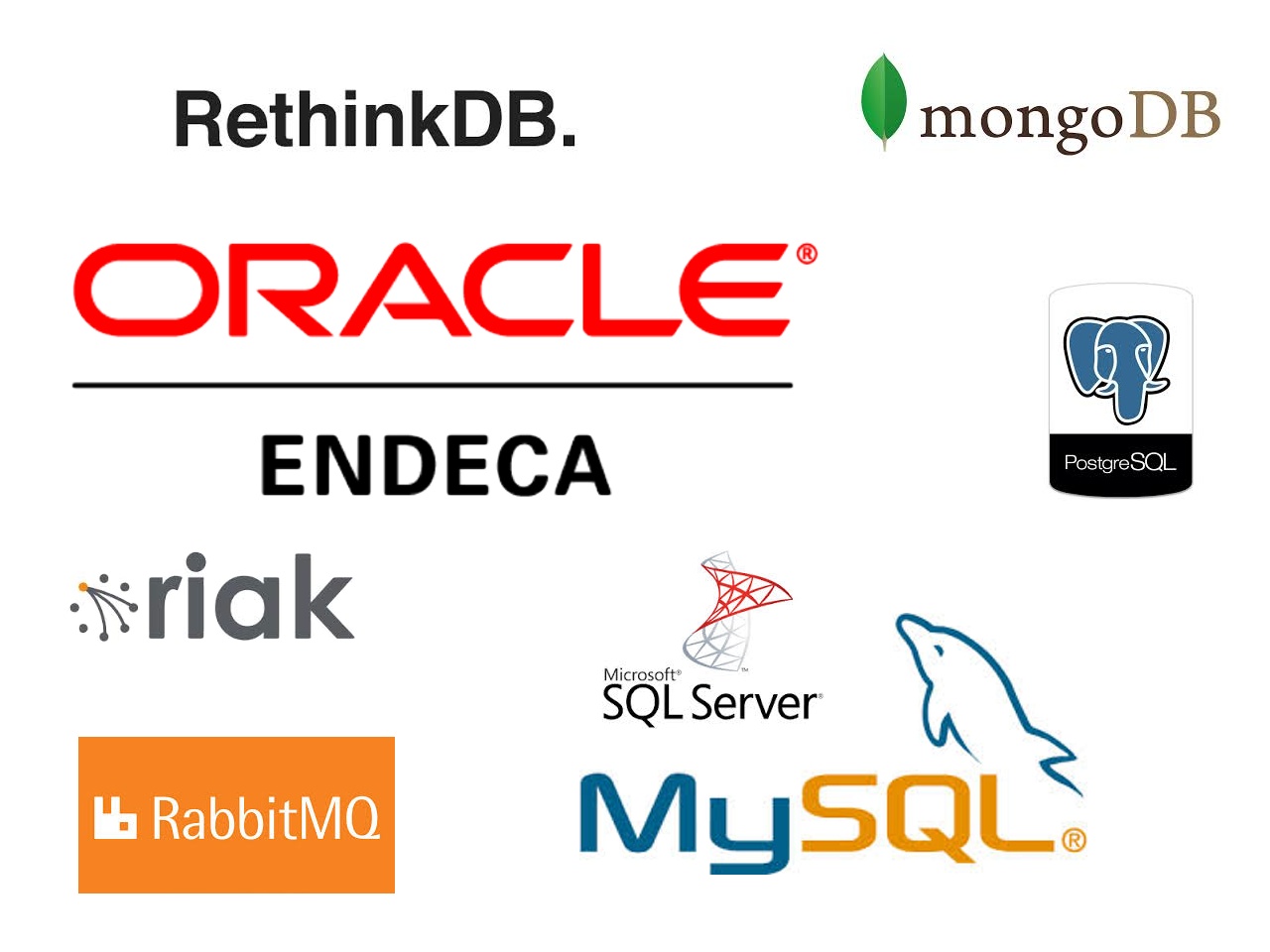
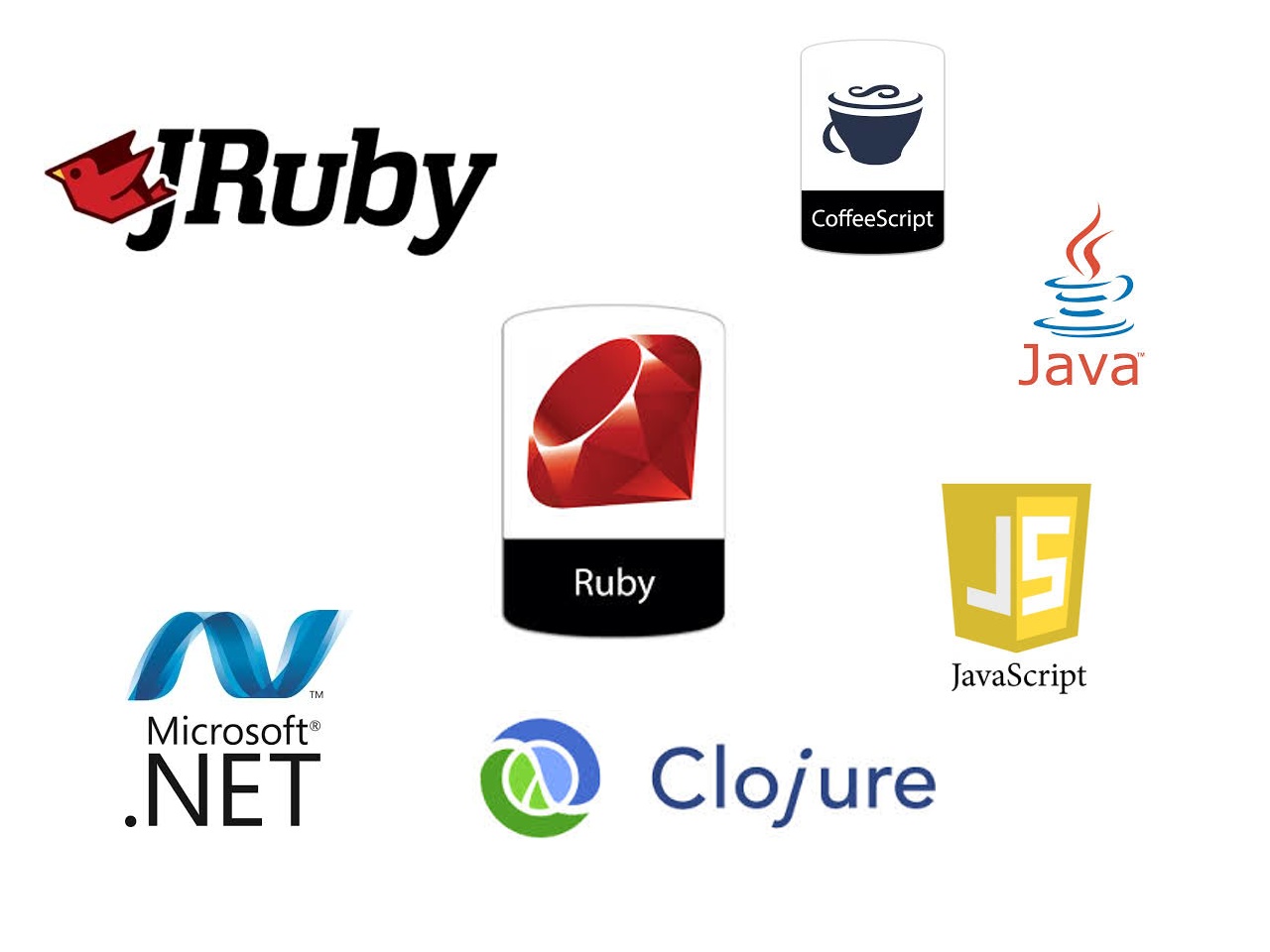
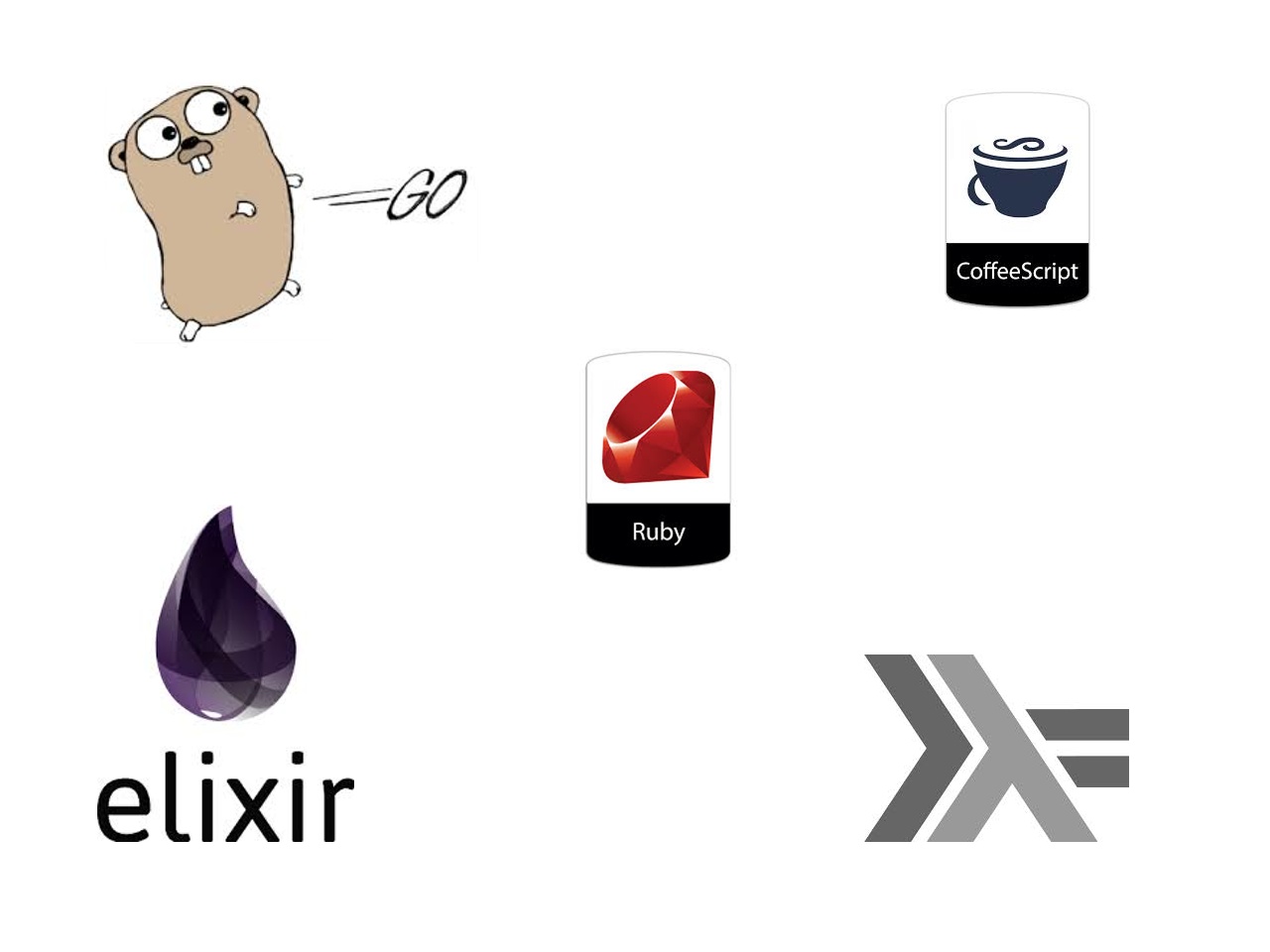

We've got history :).
Started in 1999 (date of first website on wayback machine)
2 Apps still on
ruby-1.8.7.At least one still on
rails-2.3.x.
Legacy Code
Starts simple as an application with a few routes
Authentication
Extra Features
- Background processing
Painful Features
- Integrate RPC
- Parse complex and irregular .XLS uploads
- Parse irregular XML feeds
Add various managers/CEOs
Changing Business Goals
Introduce 50 devs
- Varying backgrounds
- Various skill levels
- Various coding patterns
Agitate for 5+ yrs
Confusing


How to make things happy?


Respect
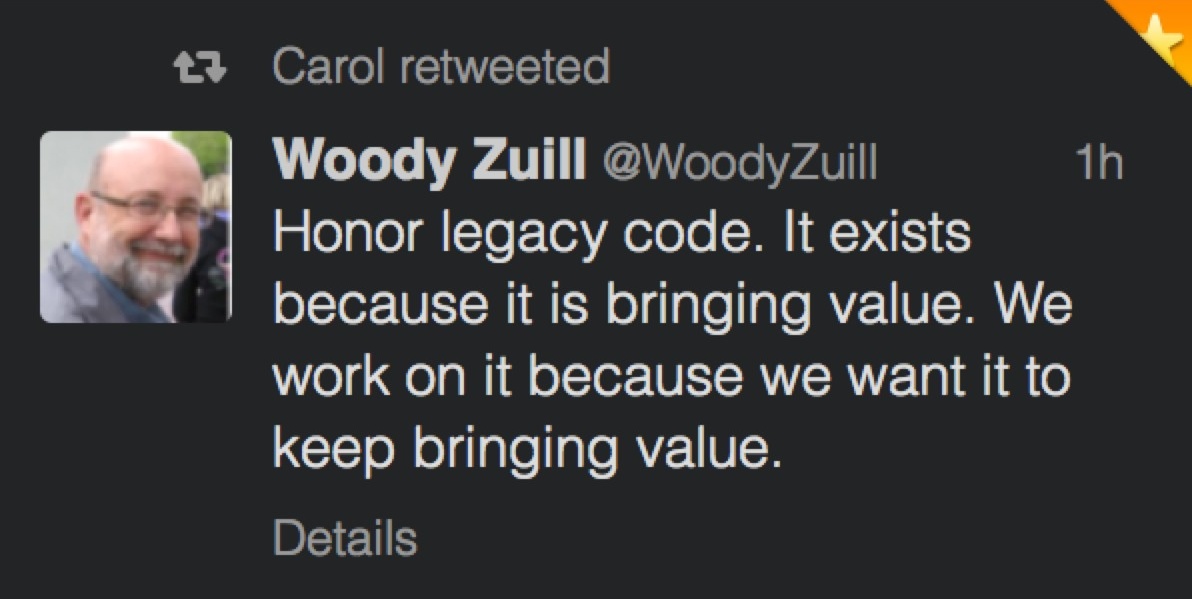
Outline
- Searching
- Debugging
- Communication
- Testing
Searching
How to search efficiently in codebase
- the-silver-searcher, pt, ack, grep
- Fast and recursive (some by default, some with proper flags)
Know your ack
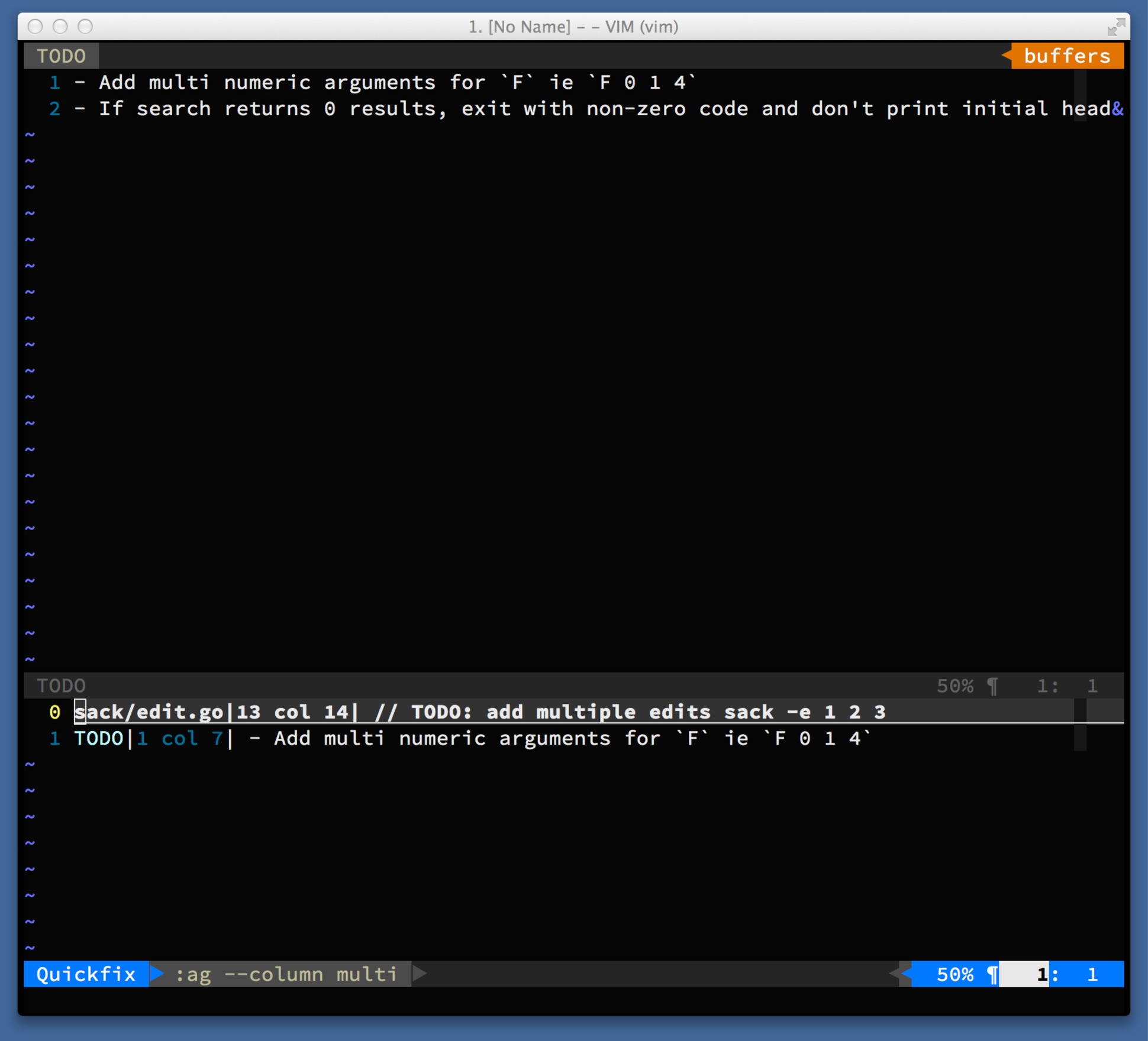
Search + Edit
- the-silver-searcher + wrapper tool called sack.

Search + Edit
- To Edit

Debugging

Pry.gem
def troublesome_method
require 'pry';binding.pry
even_more_troublesome_variable_that_blows_up
endpry-remote.gem
def troublesome_method_where_we_cant_see_answer
require 'pry';binding.pry_remote
even_more_troublesome_variable_that_blows_up
end
$ bundle exec pry-remoteCommunication
Team + VCS == Sum of Knowledge
Know who's expert with what
- Who has 3+ yrs with company?
- Who knows the multidimensional Oracle DB?
- Who knows why we chose this routing scheme?
- Who knows how to navigate social dynamics/politics
Humans knowledge is important
- They'll have context that might be lost in commit
- They might have navigated that issue before
Go out of your way for people
When the devs can't speak
Code Archeology
- Who here has a shortcut in their editor for git blame?
- What about a shortcut for opening a Pivotal Story (or other project tracker)?
- Are your commits tagged with story information?
Code Archeology
- Fugitive.vim by @tpope
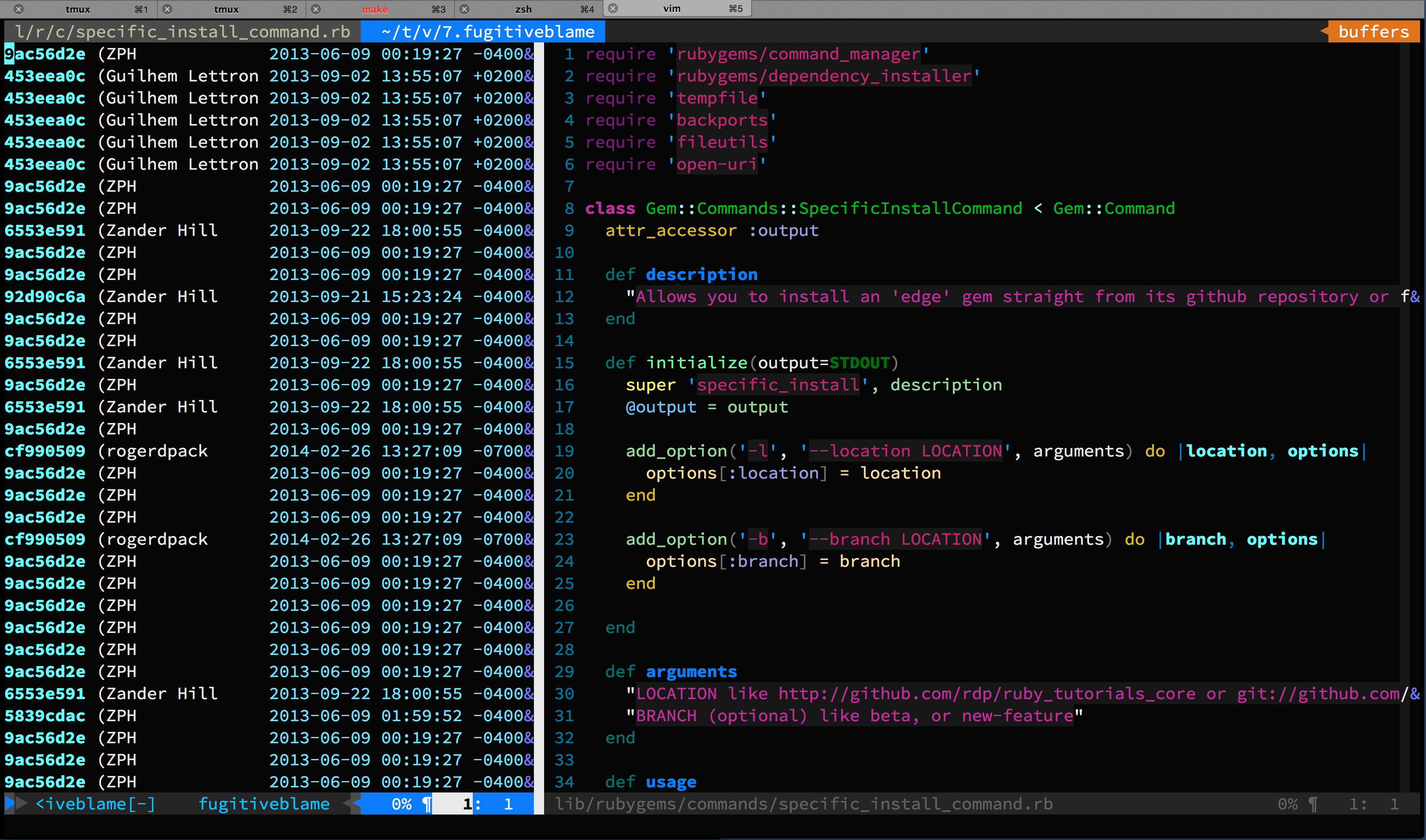
Code Archeology
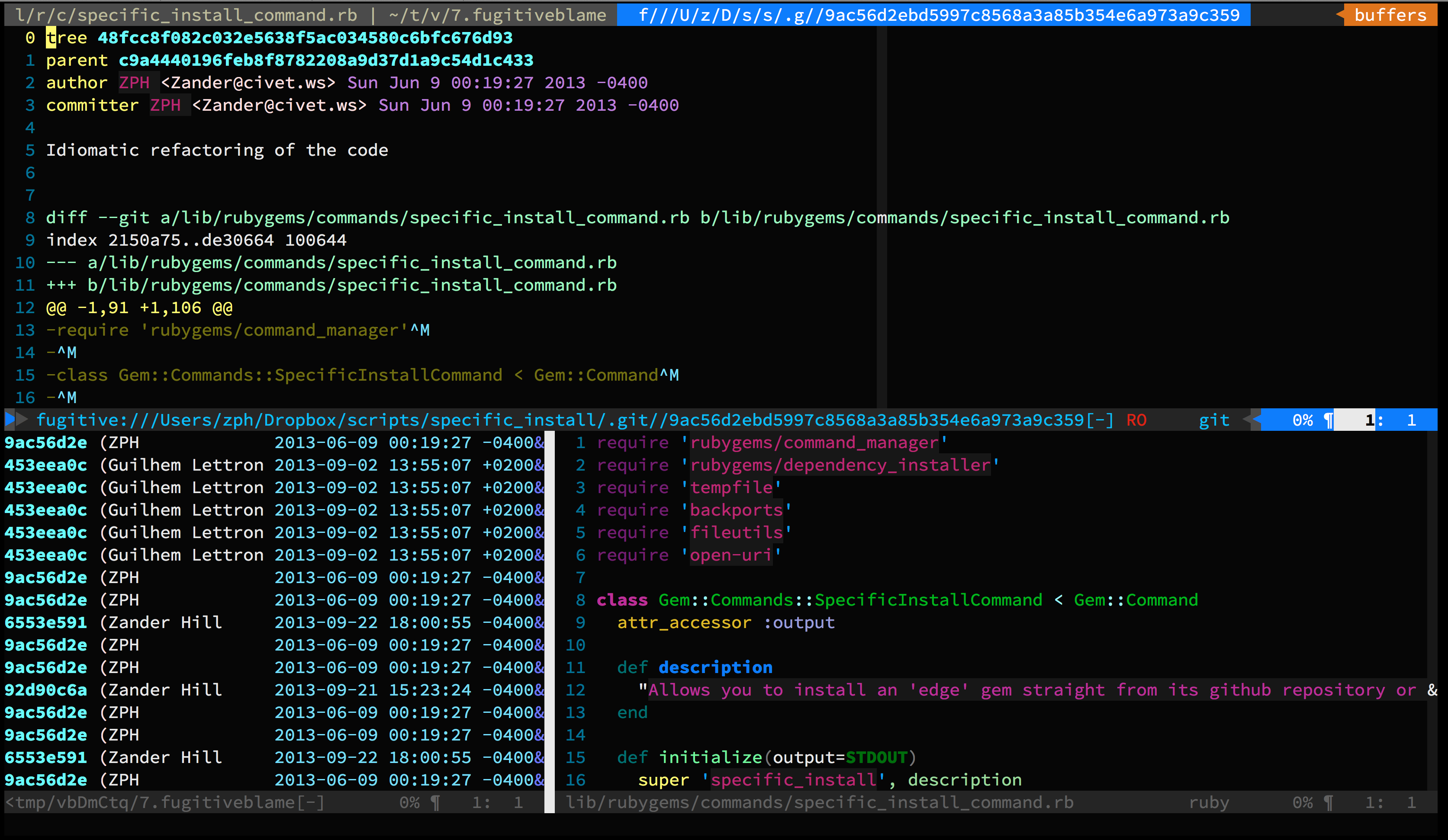
Testing
Testing - In a Perfect World
- Unit (minitest/rspec/jasmine)
- Integration (cucumber)
- Smoke tests
- Human QA team
Testing - In the Real World
- Some unit (minitest/rspec/jasmine), sparse Integration
- Manual smoke test at the end of a change
- Human QA team
Coping Strategies
- Use VCR at app boundary for APIs that you don't control

Coping Strategies
- Mock carefully, stub even more carefully.
- Keep logic in places that can easily be tested
- Away from views.
Stubs

Coping Strategies
- Wrap tests with scaffold tests before changes
- Approvals.gem
- Possibly disposable, consider in your context.
Still Exploring
Closing Thoughts
Think about how you write code
Write Once; Read Many
Write for the Maintenance

Write for the least experienced dev on team
Write for the Tired Dev

El Fin
Zander Hill
{
email: 'zander@xargs.io',
github: 'ZPH',
twitter: '@_ZPH',
}